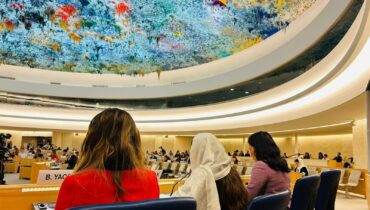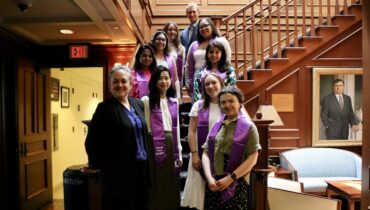Deans and directors of top U.S. graduate schools in international affairs and public policy released recommendations to increase focus on diversity and inclusion in global affairs education.
Academic leaders from universities including Georgetown, Columbia, Princeton, Tufts, Texas A&M, Carnegie Mellon, University of Minnesota, and the University of Washington issued a call to action to better prepare leaders to respond to the growing diversity of people and ideas in the 21st century.
Recommendations include fostering diversity among faculty, students, and staff; ensuring a culture of inclusion where people of different backgrounds and perspectives thrive; and broadening curricula to reflect and address how diversity affects international affairs and how inclusion benefits societies globally.
Over 100 academic leaders have signed on to the recommendations since they were released on Friday.
The call to action is the culmination of yearlong discussions by the University Leadership Council on Diversity and Inclusion in International Affairs, which comprises academic administrators from 17 schools.
“Graduates are often ill-equipped to respond to and leverage the growing diversity of people and ideas, which threatens our ability to successfully manage global affairs,” said Carla Koppell, a distinguished fellow at Georgetown and former vice president with the U.S. Institute of Peace who leads the Council.
As examples, Koppell points to the fact that aging societies sustain growth by employing migrants, but global leaders are unable to convey that to their citizens. Research indicates that inclusive peace negotiations help end wars, yet we continue only to bring combatants into peace talks, says Koppell. Civil society movements are gaining strength and influence globally, yet policymakers fail to appreciate that they are both symptoms of exclusion and important vehicles for progress, adds Koppell.
At the same time, half of the graduate programs within the Association of Professional Schools of International Affairs (APSIA) do not offer a single course focused on gender issues, according to New America – and other issues of diversity are even less frequently taught.
“That’s why I created this Council: to help academic institutions prepare students to succeed in global affairs in the 21st century,” says Koppell.
“The study of international and public affairs can flourish in an intellectual environment that recognizes the importance of diverse, inclusive and global perspectives,” said Merit E Janow, Dean, School of International and Public Affairs, Columbia University.
Mark A. Welsh, dean of Bush School of Government and Public Service at Texas A&M University, said leaders need the skills to excel in a diverse, inclusive, dynamic environment, and the motivation to foster diversity, inclusion and respect for all citizens in communities where these aspects don’t yet exist.
“Understanding diversity … is a matter of core competence for foreign affairs professionals,” adds Reuben Brigety, Dean, Elliott School of International Affairs George Washington University.
The call to action is open to sign on from deans, directors, professors and scholars in global affairs education in the US and around the world.


